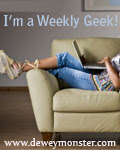
Title: My Name is Red
Author: Orhan Pamuk
ISBN: 0375706852
Publisher: Vintage International/2001
Pages: 413
I had started this book in January. For some reason, it stayed at page 43 for a few months. I again picked it up in April. I only read upto page 59. However, finally I decided to finish it this week. Today I did. You can say that I plodded through the book. It could only hold my interest after I had read it half way through.
This book has many layers to it. A murder mystery, a love story and also speaks out about Islamic society. One can feel the tensions throughout for the rise and fall of various empires which is told by the way of miniature art. At some point in the book, we do not care who the murder is but get involved in the treachery of politics, the love affair and want to know more about the Islamic society. Being an Indian, and knowing a bit about Islam did help me.
There is clash between cultures. Between spirituality and materialism. Between getting fame at whatever cost and bowing to art. Between God's will and man's doing. How does one define sin? Can one justify it? Does it merge somewhere? Is there really a fine line? These are few of the questions one asks while reading. A few get answered, a few don't. That does not take away anything from the book. We can see the eternal conflict between the old and new, and tradition and change i.e., that of East and West. Then there are those artists who only depend on copying, others who want to take in the western influence to show other perceptions.
This book has been narrated in many voices, mostly human. However, a few include a horse, a dog, a tree and a coin. Also we see voice of death. One tends to get different perception in this way of speaking. The novel begins with the voice of a dead person, the recently killed Elegant Effendi. His murderer is a recurring character, telling his story both anonymously and also as a character not identified by the others as being the killer, until the end.
The setting of the book is the late 16th century, in Istanbul. Elegant Effendi and his murderer are both artists: miniaturists and illustrators. Other important characters are Enishte Effendi, a master artist, his nephew, called Black, who too is a miniaturist, and his daughter Shekure. Black had fallen in love with Shekure, but it was not possible for them to marry. Black left Istanbul and returned after twelve years. Meanwhile, Shekure got married three years after he left, and has two sons. However her husband disappeared years ago and is presumed to be dead. Now her husband's brother Hasan, wants to marry her as does Black.
Pamuk's descriptions and evocations are like the miniatures he describes. Very detailed, very pictursque and paying attention to finer nuances which can be used to for different effects, at different times. It is a fascinating read, no doubt. However, it is very slow in the beginning. One has to literally plod through it to get to the end. That is worthwhile. I must mention it again, that this is not an effortless read. I am in no hurry read other books by him!
If you have read and reviewed the above book, type your name, and please copy/paste your post link in the URL field. I will then link it in the body of this article. With the link exchange, we will be both be benefiting. That way I and other interested readers can visit you too! Thanks!























